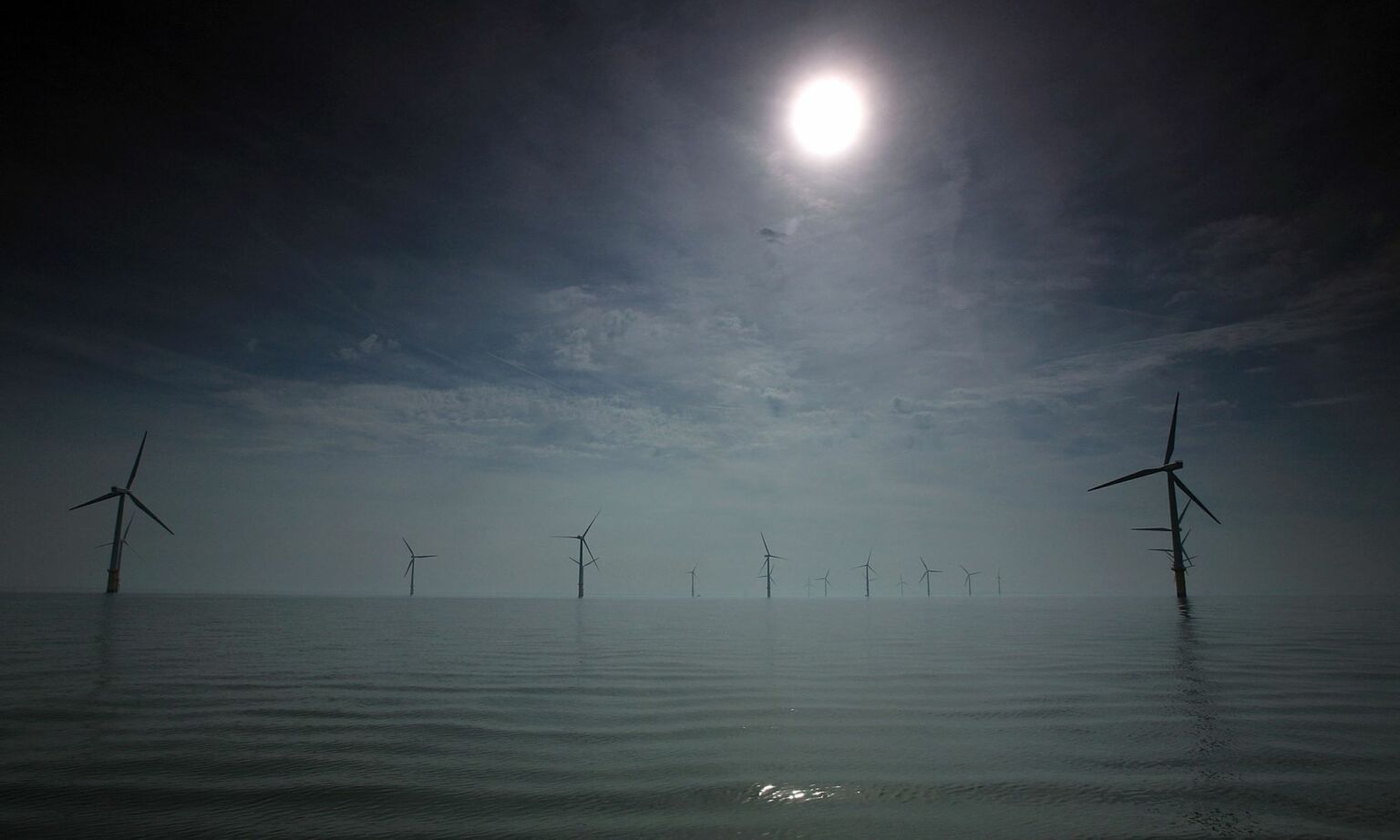
Long-read
The human cost of Net Zero
The war on fossil fuels is far more dangerous than climate change.
Want to read spiked ad-free? Become a spiked supporter.
In 2021, Jeremiah Thoronka was making a name for himself in clean-energy technology. The then 21-year-old Durham University masters student had invented a device that uses kinetic energy from traffic and pedestrians to generate electricity. It certainly sounded groundbreaking. In a pilot project in Thoronka’s native Sierra Leone, two devices had apparently provided free electricity to 150 households and 15 schools.
Thoronka’s work clearly impressed awards panel judges. In 2021, he picked up the Commonwealth Youth Award and the Global Student Prize, which was presented to him by filmstar Hugh Jackman at a virtual ceremony, broadcast from the UNESCO headquarters in Paris. Thoronka was the man of the moment. There was a profile by the BBC, an invitation to give TED talks and, in May 2022, an audience with the pope. He was celebrated as a green-tech innovator, someone setting a clean-energy example for the world to follow.
The accolades have continued to flow. Last month, at the Green Tech Festival in Berlin, he won the Youngster Green Award for 2023. It was this that prompted German journalists to ask if it might all be a little too good to be true. They contacted the organisers of the Youngster Green Award and Greentech Festival to find out a bit more about Thoronka’s pilot project. After all, it sounded incredible. But the organisers said that wouldn’t be possible because the pilot had since been dismantled. They asked if the device was being used anywhere else, and were told that it wasn’t. One journalist even asked if there were any videos, blueprints or other documentation of this unprecedented breakthrough. Again, nothing was forthcoming. In fact, no one could tell journalists much about the device or the pilot project at all.
It seems the Youngster Green Award and Greentech festival organisers, and potentially others, have been willing to take Thoronka’s achievement entirely at face value. Perhaps the pilot was a success; perhaps it wasn’t. That no one really knows – or cares to know – is telling.
Clearly, Western green elites want to believe in the success of Thoronka’s device. As journalist Alexander Wendt concluded, perhaps Thoronka’s genius lies not in the field of piezoelectricity – the conversion of kinetic energy into electricity – but in ‘psycho-engineering’. He is telling the West’s green establishment what it wants to hear. It wants to believe it’s possible to meet Africa’s growing energy needs without fossil fuels or nuclear power. And so this kinetic-energy device is catering to their environmentalist fantasies.
The tale of Thoronka’s device captures well the wishful thinking that dominates the worldview of Western green elites. They are determined to believe that there are quick and easy routes to decarbonising the economy. That it’s possible to meet people’s energy needs today without using fossil fuels or nuclear power. That the transition to clean, green energy is just around the corner, and the only thing standing in its way are the evil fossil-fuel companies.
This is a dangerous, infantile outlook. And it’s not just confined to the likes of groups like Just Stop Oil. It is the outlook of a large part of our political and media elites, too. They talk up the transition to clean energy and set grandstanding Net Zero targets. And they encourage the demonisation and cessation of fossil-fuel use. But all their green schemes will come at a huge human cost.
The truth is that our societies are still massively dependent on fossil fuels. For all the talk of the advances made in renewable energy, the proportion of our electricity production reliant on fossil fuels has barely changed over the past 40 years. In that time, only nuclear power has declined as a source of electricity.
None of this is to say that an energy transition is impossible. A target of Net Zero by 2050 could well be met. But the rapid abandonment of fossil fuels that this demands would inflict misery and hardship on billions of people.

How fossil fuels power the world
Of course, Western elites will claim that the energy transition is absolutely necessary if we’re to avert catastrophe from climate change. King Charles and London mayor Sadiq Khan even unveiled a ‘National Climate Clock’ last month, just to show how little time we supposedly have left to stave off the apocalypse.
In truth, Western politicians themselves don’t really take their own doom-mongering that seriously. They know that talk of ending fossil fuels appeals to parts of the electorate. Plus it looks good on the global stage. It’s something to posture over at the annual COP junket. But they also know that most people would be unwilling to bear the consequences of an actual end to fossil fuels.
US president Joe Biden, for example, is well aware that gasoline prices have a direct impact on his re-election prospects. This is why he has shown no hesitation in draining America’s Strategic Petroleum Reserve to keep prices down.
The same bad faith is at work among European politicians, too. They hype up the ‘climate emergency’ and posture over Net Zero targets. But when push comes to shove, they relent. Germany, for example, likes to present itself as a leader of the global energy transition. Yet as soon as the energy crisis started to bite last year, the German government brought coal power plants back online to power the electricity grid. And it did so by burning lignite, the dirtiest type of coal.
Then there’s Norway, the fifth-richest country in the world, which is blessed with abundant natural resources and hydropower. It has become the poster child for the introduction of electric vehicles, and we’re told it is showing the world how to manage the energy transition. But is it really? Domestic oil consumption in Norway today is about as high as it was in 1985. Despite the hype, Norway’s energy transition is going much slower than the headlines let on. Norwegians themselves know which side their Smørrebrød is buttered. Indeed, Oslo has just approved $18 billion in funding to help develop another 19 oil and gas fields.
Western governments’ green hypocrisy is revealing. They posture endlessly about Net Zero and indulge in fantasies about the energy transition. Yet they can’t escape the fact that fossil fuels are integral to their societies’ wellbeing.
Canadian political scientist Vaclav Smil lists cement, steel, plastics and ammonia as the four ingredients that make the modern world possible. For example, modern healthcare systems need enormous amounts of plastic (for everything from flexible tubes to sterile packing), making it yet another crucial ingredient in the wellbeing of humanity. And without steel and cement, nothing could be built – no roads, no houses, no harbours, no airports. Plastics, steel and cement also require fossil fuels for their production.
The same goes for modern agriculture. It depends on synthetic fertilisers, which massively increase yields and allow farmers to use smaller areas of arable land. Without these fertilisers, half the current global population would go unfed.
The production of these fertilisers depends on something called the Haber-Bosch process, a method of producing ammonia from nitrogen and hydrogen, which was invented in the early 20th century. Given its contribution to feeding the world, Smil has justifiably called it the ‘most momentous technical advance in history’.
The problem for those demanding the phasing out of fossil fuels is that the hydrogen required for the production of ammonia, and therefore synthetic fertilisers, is almost entirely derived from fossil fuels. So all of Smil’s building blocks for the modern world are dependent on the very materials that Western elites say they want to keep in the ground.
It’s not just fertilisers that require fossil fuels, either. Seventy-five per cent of all farm equipment in the US runs on diesel. It dominates the entire farming supply chain, from planting to harvesting to bringing food to market.
A green optimist might suggest simply replacing all these diesel-powered machines with industrial EVs. Yet to build the batteries for all these EVs would require a massive expansion of energy-intensive mining for metallic minerals, such as cobalt, lithium, manganese and nickel. EVs would also require clean electricity sources to charge them.
In fact, every step of the proposed energy transition is itself dependent on fossil fuels. You cannot build a wind turbine without lubricants from oil, a concrete foundation and copious amounts of steel. Just as you cannot make solar panels without polysilicon, a component that is immensely energy intensive to produce because it requires temperatures beyond 1,150 degrees Celsius.
The expansion of mining activities needed to build EVs and wind turbines is particularly problematic for the clean-tech crusaders. According to the International Energy Agency:
‘A typical electric car requires six times the mineral inputs of a conventional car and an onshore wind plant requires nine times more mineral resources than a gas-fired plant. Since 2010, the average amount of minerals needed for a new unit of power generation capacity has increased by 50 per cent as the share of renewables in new investment has risen.’
The mineral-mining sector is also energy intensive, producing a huge amount of carbon emissions. It is already responsible for 38 per cent of total global industrial energy use. This means that even if the electrification of all vehicles were possible, it wouldn’t eliminate carbon emissions. It would just raise them at other points in the supply chain.
Moreover, the environmental movement already wants to clamp down on mineral mining. Mining permits in Europe and the US have already been restricted. This means that the minerals for the production of EVs and wind turbines will likely come from poor nations with fewer restrictions on mining and with atrocious labour conditions. We can already see this happening in the cobalt mines of the Congo.

Keeping Africa poor
Western nations have long enjoyed the benefits of industrialisation. Now, by clamping down on fossil fuels, they are trying to pull up the ladder. German foreign secretary Annalena Baerbock even had the audacity to lecture South Africa on its use of coal recently, while her own government has been burning it at record rates. Not without reason, parts of the developing world are beginning to accuse the West of engaging in ‘green colonialism’.
Make no mistake, the West’s prosperity rests on fossil fuels. The Industrial Revolution was fuelled by the exponential growth in available energy. In 1870, British steam engines generated four million horsepower, the equivalent amount of work done by 40million men. Feeding such a workforce would have required three times Britain’s entire wheat output. But in 1870, all it took to generate one horsepower was a pound of coal.
Coal was just the beginning. Soon oil was added to the fuel mix and eventually gas, too. This massive increase in energy production allowed a tremendous increase in living standards. The average Briton in 1960 was six times richer than his great grandfather in 1860.
Industrialisation transforms societies. The industrialisation of agriculture, for example, enables higher outputs with less labour, freeing humans for other endeavours. In the US, the labour needed to produce a kilogram of grain fell by 98 per cent between 1800 and 2020. The share of the population working in agriculture fell by a similar margin during that period. Not every country will have to follow this development path exactly – coal, for example, could be replaced by gas and nuclear. But what is certain is that no country will be able to industrialise and develop without fossil fuels.
The developing world needs what the West already has. It needs roads, railways, housing, transmission lines and factories. In many parts of the globe, such infrastructure is all but nonexistent. Around 940million people (13 per cent of the global population) do not have access to electricity; and three billion people are forced to cook with dung, wood or other solid fuels – all of which create health risks due to indoor air pollution.
These parts of the world need the elements of modern life that are taken for granted in the industrialised world. If we are really worried about heat waves in India, we should support the production and dissemination of air conditioning. And if we want to increase life expectancy in Sub-Saharan Africa, we should expand access to electricity and natural gas so that people no longer need to burn dung. All of these steps will call for the use of fossil fuels. Denying them to the poorest on the planet would condemn billions to shorter life expectancies, worse health conditions and higher child mortality.
The talk of leaving fossil fuels behind is not based in reality. It’s fuelled instead by a mixture of apocalypticism, hypocrisy and sheer wishful thinking. In the future, perhaps we will be able to power hospitals using kinetic energy. But right now, the costs of abandoning fossil fuels will likely do far more harm than climate change itself.
Ralph Schoellhammer is an assistant professor in economics and political science at Webster University Vienna.
Picture by: Getty.
Who funds spiked? You do
We are funded by you. And in this era of cancel culture and advertiser boycotts, we rely on your donations more than ever. Seventy per cent of our revenue comes from our readers’ donations – the vast majority giving just £5 per month. If you make a regular donation – of £5 a month or £50 a year – you can become a and enjoy:
–Ad-free reading
–Exclusive events
–Access to our comments section
It’s the best way to keep spiked going – and growing. Thank you!







Comments
Want to join the conversation?
Only spiked supporters and patrons, who donate regularly to us, can comment on our articles.